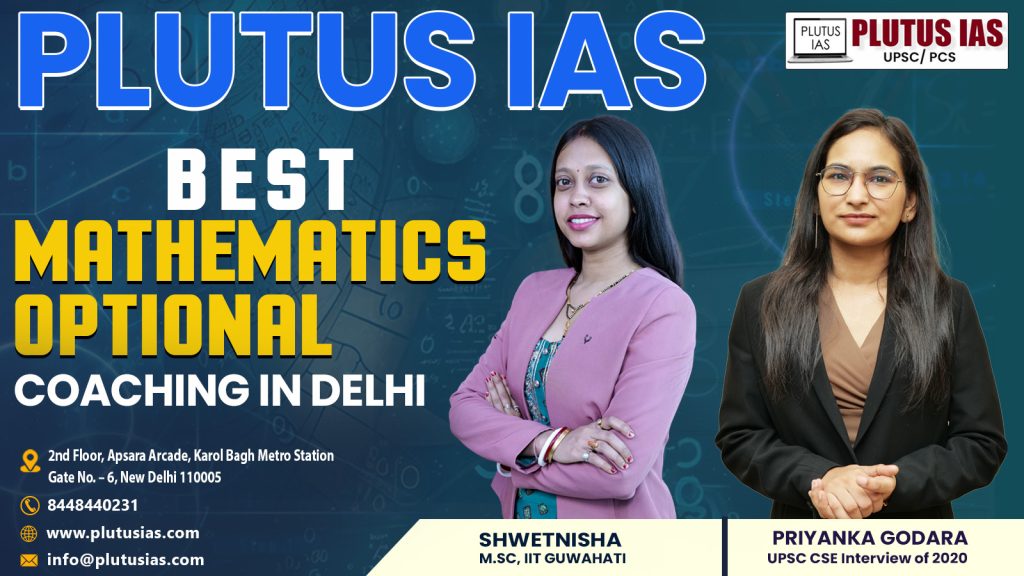
Address:
706 1st Floor Dr. Mukherjee Nagar Near Batra Cinema Delhi – 110009
City:Delhi
Vendor Type:Service Provider
If you are considering Mathematics as your optional subject for the UPSC Civil Services Exam, here are some important points and resources to assist in your preparation:
Advantages of Choosing Mathematics
- Development of Analytical Skills: Mathematics fosters strong analytical and problem-solving abilities, which are beneficial for the exam and various roles in civil service.
- Objective Nature: The subject is primarily objective, making it easier to achieve high scores if you have a solid understanding of the concepts.
- Relevance to General Studies: Mathematical concepts are often applicable in areas related to statistics, economics, and data interpretation in General Studies papers.
Overview of the Syllabus
- Algebra: Study of algebraic structures, equations, and inequalities.
- Calculus: Examination of differential and integral calculus, including their applications.
- Linear Algebra: Exploration of vector spaces, matrices, and linear transformations.
- Statistics and Probability: Understanding statistical methods, distributions, and probability theory.
- Mathematical Reasoning: Analysis of logic, set theory, and proof techniques.
Preparation Strategies
- Recommended Textbooks:
- “Higher Algebra” by Hall and Knight.
- “Calculus” by Tom M. Apostol or “Calculus” by I.A. Maron.
- “Linear Algebra” by Kenneth Hoffman and Ray Kunze.
- NCERT Books: Start with NCERT textbooks for Class 11 and 12 to build a strong foundation in mathematics.
- Online Courses:
- Platforms like Unacademy, BYJU’S, and others offer specialized courses for Mathematics optional, providing structured content and expert guidance.
- Consistent Practice: Solve numerous problems and practice past years’ question papers to familiarize yourself with the exam structure and types of questions.
- Focus on Concepts: Emphasize understanding the underlying concepts rather than merely memorizing formulas, as this will help you tackle more complex problems effectively.
Additional Resources
- Mathematics Blogs and YouTube Channels: Follow educators who focus on mathematics for further insights and problem-solving techniques.
- Study Groups: Join or create study groups to discuss topics, share resources, and collaboratively solve problems.
